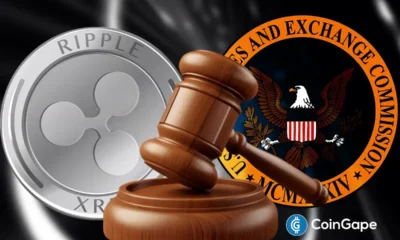Regulation
Judge orders the U.S. SEC to pay $1.8M in Debt Box case dismissal


- Judge dismisses U.S. SEC’s case against Debt Box, orders SEC to pay $1.8 million in fees.
- The Ruling cites SEC’s bad faith conduct in obtaining asset freeze order.
- Debt Box calls the court’s decision a significant victory against regulatory overreach.
In a significant legal victory for Digital Licensing, the firm known as Debt Box, a federal judge has dismissed the U.S. Securities and Exchange Commission’s (SEC) civil lawsuit and ordered the regulatory body to pay approximately $1.8 million in fees.
The ruling, handed down on May 28 by Judge Robert Shelby in the U.S. District Court for the District of Utah, marks a notable rebuke of the SEC’s actions in this case.
The U.S. SEC on the receiving end
The fees include roughly $1 million for attorney fees and costs, and an additional $750,000 for receiver fees and costs.
This order followed a March court decision that found the SEC had engaged in “bad faith conduct” by seeking a temporary restraining order to freeze Debt Box’s assets based on inaccurate information. This misconduct led the court to threaten sanctions against the commission.
Judge Shelby’s ruling mandated that the SEC cover all attorney fees and costs resulting from the erroneous ex parte relief, with the exception of one $649 fee which he deemed inappropriate.
Debt Box, in a statement released via X, hailed the decision as a major triumph, stating, “This is a significant win for us. It means that the SEC cannot proceed with the case as it stands.”
What was the Debt Box case all about?
The SEC’s lawsuit, initially filed in July 2023, accused Debt Box of orchestrating an illegal $50 million cryptocurrency scheme.
However, Debt Box countered with documentation suggesting that the SEC had made false statements and misrepresentations, which led to the improper restraining order.
This case drew considerable attention within the cryptocurrency community, highlighting issues of regulatory overreach.
Meanwhile, the SEC continues to pursue legal actions against several other crypto firms, including Binance, Kraken, Ripple, and Coinbase.
In response, lawmakers are advocating for clearer regulatory frameworks for digital assets, with proposed legislation like the Financial Innovation and Technology for the 21st Century Act aiming to address these concerns.












